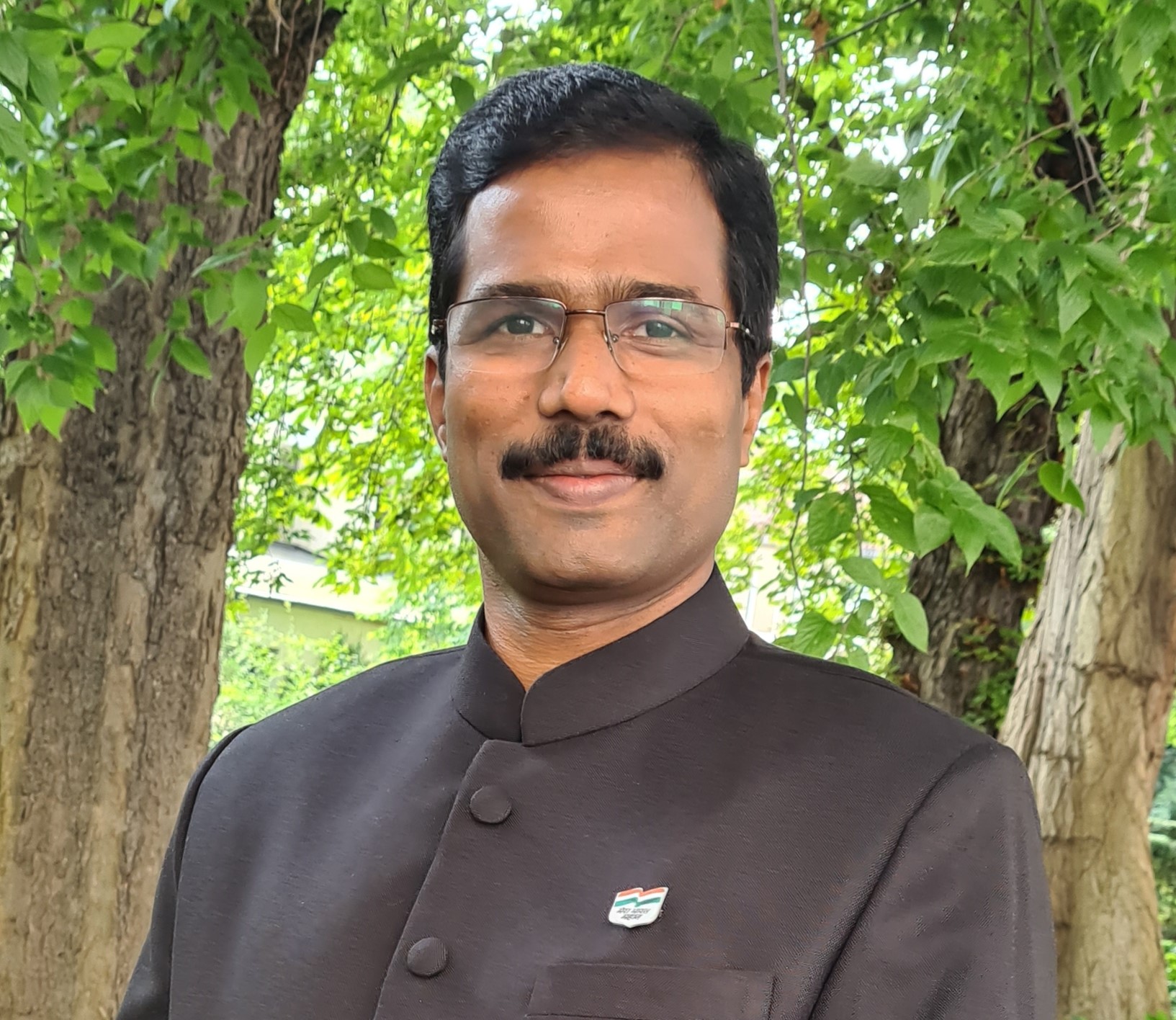 Dr. Madhusudan Reddy Nandineni holds a Bachelor's degree in Microbiology from Nizam College, Hyderabad and a Master of Science in Biotechnology from the University of Hyderabad, India. He completed his PhD in molecular genetics at the Centre for Cellular and Molecular Biology (CCMB), Hyderabad, India, Hyderabad, followed by postdoctoral research at Yale University School of Medicine in the USA.
Dr. Madhusudan Reddy Nandineni holds a Bachelor's degree in Microbiology from Nizam College, Hyderabad and a Master of Science in Biotechnology from the University of Hyderabad, India. He completed his PhD in molecular genetics at the Centre for Cellular and Molecular Biology (CCMB), Hyderabad, India, Hyderabad, followed by postdoctoral research at Yale University School of Medicine in the USA.
Since 2005, he has been serving as a Staff Scientist and Group Leader at the Centre for DNA Fingerprinting and Diagnostics (CDFD) in Hyderabad, which is a federal government-funded referral centre for forensic DNA profiling in India. During his tenure at CDFD, he oversaw the supervision of several thousand forensic DNA profiling cases, which included complex mass disaster scenarios from different regions in India. At CDFD, his research group is dedicated to enhancing the success rate of challenging and degraded forensic skeletal samples. They achieved the standardization of the hybrid-capture method for STR enrichment and developed an efficient SNP-based panel for human identification purposes. Furthermore, his group conducted extensive genetic variation analyses within Indian population groups. His ongoing research interests encompass forensic DNA profiling, investigations into human population diversity, and exploring plant-fungal interactions.
He returned to India in August 2005 to join CDFD, Hyderabad as Staff Scientist and Group Leader. His current research interests include forensic DNA profiling, human population diversity studies and plant-fungal interactions studies.
Dr. Nandineni also played a vital role in international scientific diplomacy as the Scientific Attaché/Counsellor (Science and Technology) at the Embassy of India in Berlin, Germany, from 2019 to 2023, fostering collaboration in various science, technology and innovation sectors between India and Germany.
Throughout his career, Dr. Nandineni has received numerous accolades, including the Innovative Young Biotechnologists Award in 2006 and the prestigious Max Planck India Visiting Scientist Fellowship from 2007 to 2010. In 2007, he was honoured with the BioAsia Innovation Award for Young Scientists, recognizing his innovative contributions to the field. During 2011-17, he led the Max Planck Partner Group Programme on human genetic diversity studies at CDFD. Additionally, in 2018, he received the Best Scientist Award from the Government of Telangana State, and in 2020 was elected as a Fellow of the Telangana Academy of Sciences. In the year 2023, he was appointed as a Member of the Board of Trustees for the Max Planck Institute for Plant Breeding Research (MPIPZ), Cologne, Max Planck Society, Germany.
|